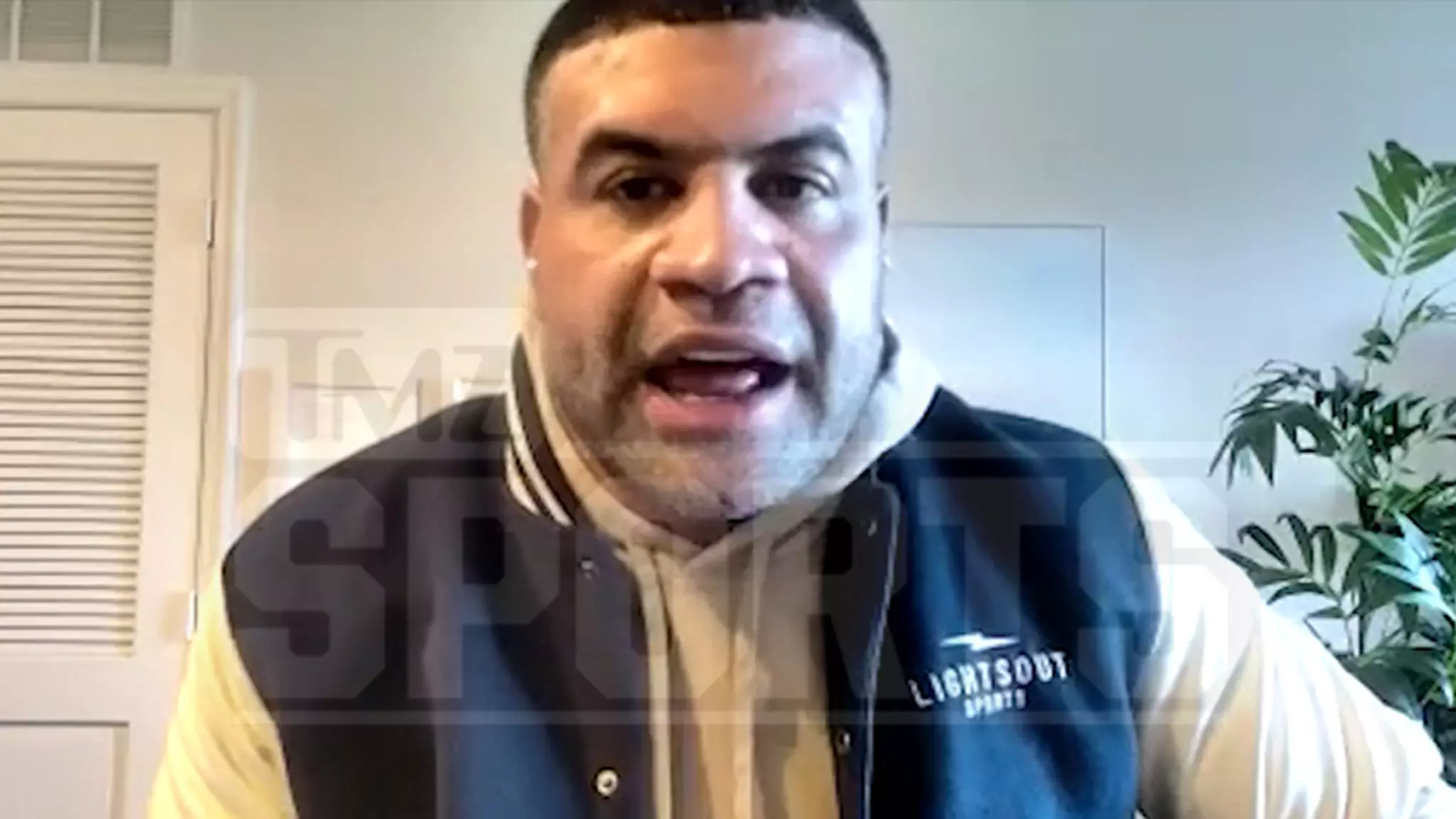In professional sports, reputation can be both a career booster and a career wrecker. One moment of poor judgment or failure to act can overshadow years of hard work and dedication. This reality has been dramatically illustrated in the case of San Francisco 49ers linebacker De’Vondre Campbell. Recent events during a high-stakes game against the Los Angeles Rams have led many, including former NFL star Shawne Merriman, to opine that Campbell’s reputation may never recover, potentially marking the end of his tenure in the league.
The drama unfolded during a critical third-quarter segment of the 49ers versus Rams game when Campbell found himself faced with an unexpected dilemma. After Dre Greenlaw, a player who had just taken over his position, went down with an injury, Campbell’s refusal to enter the game raised eyebrows not just among fans but also within his own team. Teammates, including prominent figures like Charvarius Ward and George Kittle, expressed disappointment and frustration in the aftermath of the game. Such reactions highlight a breach of protocol and trust that players rely on when in the heat of battle.
As Shawne Merriman pointedly noted, an athlete’s reaction during pivotal moments can dictate their future. “I’ve been around a lot of things…and this one incident is what you’re going to be labeled as going forward,” he stated. The gravity of Merriman’s words underscores a critical point in professional athletics: the importance of being dependable when the stakes are high. Failure to step up in these moments can lead to an irreversible stigma, as Campbell is now recognizing.
In an environment where performance on the field is paramount, athletes must maintain their reputations as reliable team players. De’Vondre Campbell, a seemingly promising player with years of dedication behind him, now faces the potential fallout of this single incident. Merriman predicts that Campbell’s reliability has been irrevocably damaged. “I’d be shocked if another team decides to pick him up,” he added, reflecting the harsh reality of the competitive NFL landscape.
The discourse around Campbell opens the door to discussions regarding mental resilience in sports. Athletes are not just judged on their skills but also on their mental fortitude and decision-making under pressure. Campbell’s moment of hesitance raises serious questions about his readiness for the rigors of professional football.
The response from the 49ers organization, including head coach Kyle Shanahan, has been telling. Merriman suggests that the organization is right to take a stand and emphasize that such behavior will not be upheld. “They had to set the tone to let everyone know that this is not going to be tolerated here,” he argued, reflecting a broader trend in sports where organizations are more willing to sever ties with players to protect team integrity and morale.
While some may argue that every player deserves a second chance, the stakes in professional sports make such leniency rare. Organizations are built on trust and dependability; when a player’s actions undermine these pillars, their future within the team—and indeed the league—becomes perilously uncertain.
For Campbell, the road back to a semblance of respect and acceptance is fraught with challenges. Merriman’s advice to issue a heartfelt apology—itself a reflection of personal accountability—could be a pivotal step in this journey. “He has to come out with a very heartfelt message,” Merriman suggested, indicating that transparency and humility could help alleviate some of the damage done.
However, mere words may not be enough. Campbell will not only need to apologize but also demonstrate through consistent performance and reliability that he can indeed learn from his mistakes. Fans, team members, and other franchises will be watching closely—will he rise to the occasion or allow the weight of this incident to define his career?
The saga of De’Vondre Campbell serves as a stark reminder that in the world of sports, a reputation can take a lifetime to build and mere moments to dismantle. The question remains: will Campbell be able to rebuild his, and what lessons will emerging athletes draw from his experience? As the proverb goes, “trust takes years to build, seconds to break, and forever to repair.” For Campbell, the clock is ticking.

